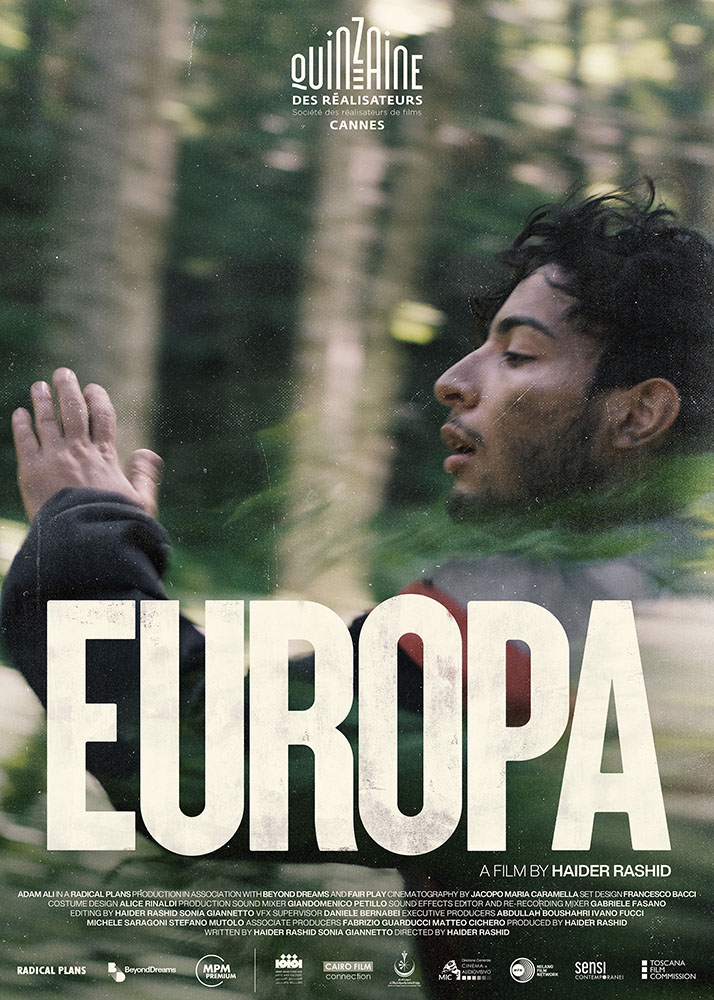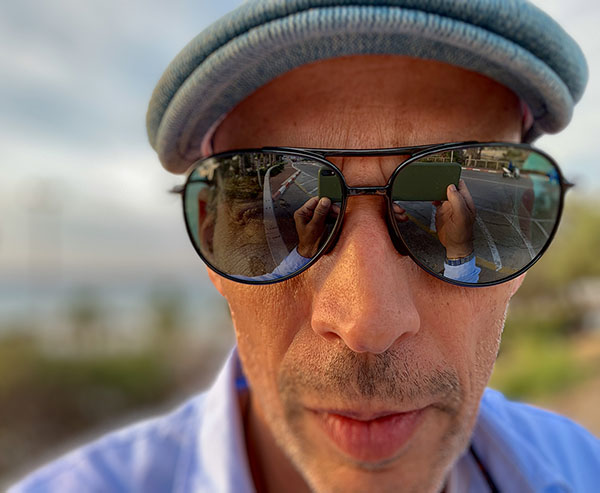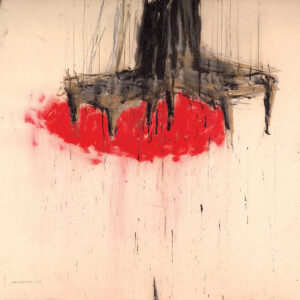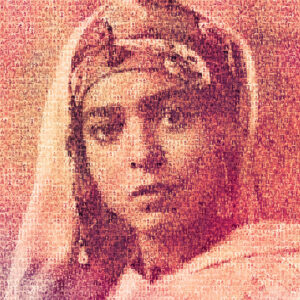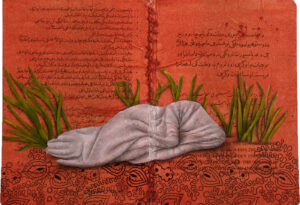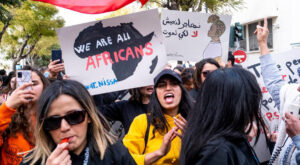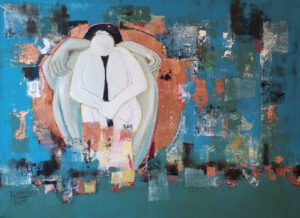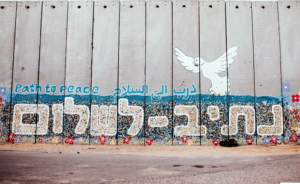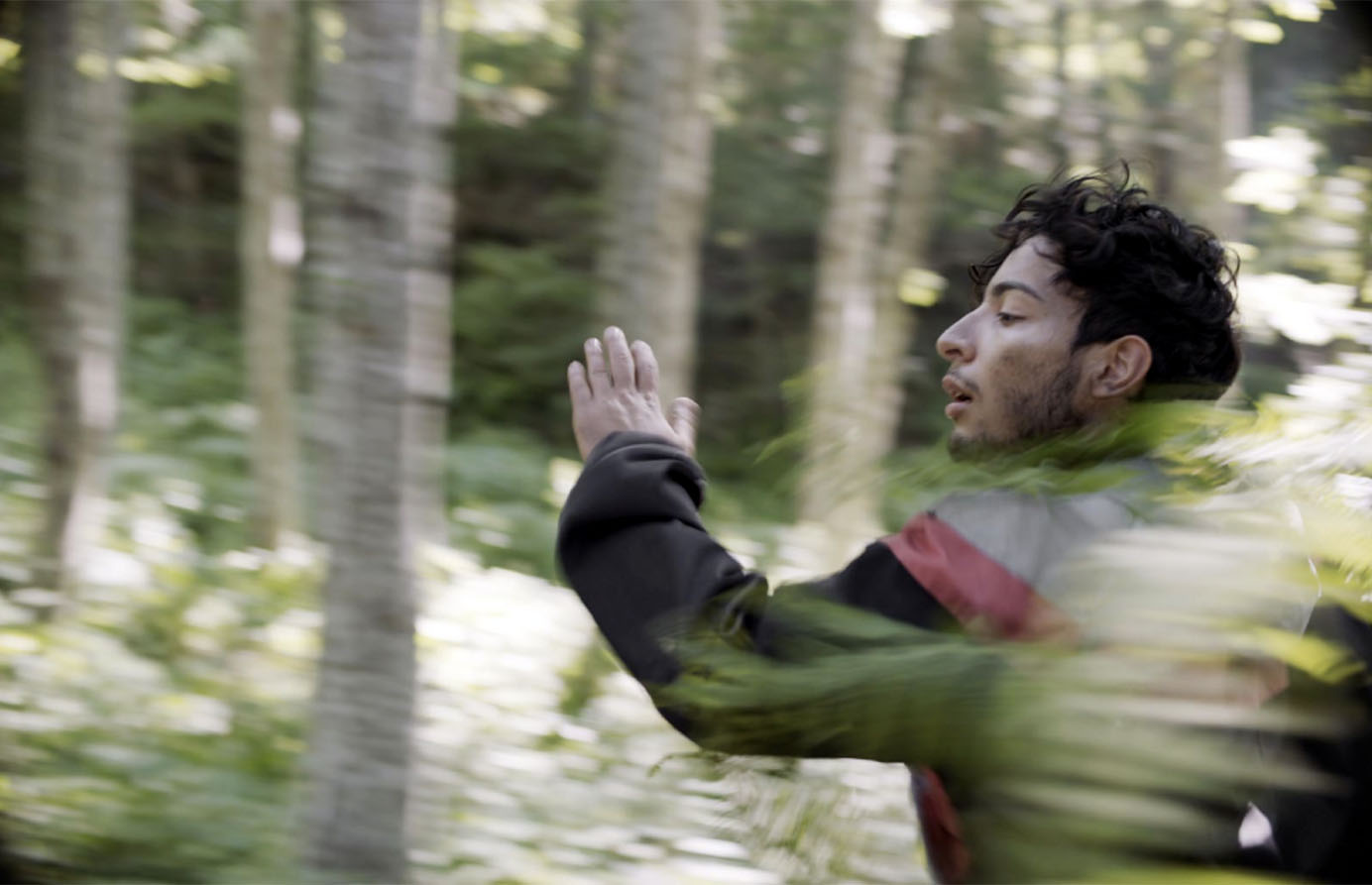
Thomas Dallal
Iraqi-Italian director Haider Rashid’s riveting Europa (2021) starkly portrays a small, but deeply scorching, fragment of the brutal reality and cruel human tragedy endured by countless refugees and asylum seekers seeking to enter Europe. In a microcosm set at and around the Turkey-Bulgaria frontier, lead character Kamal’s epic migratory struggle encapsulates the duress that millions like him have faced, and continue to face, after fleeing homes and countries during armed conflict and myriad other calamities. Accomplished 35-year-old Rashid’s latest film, his fifth feature, presents a compelling ode to millions that seek safer haven in faraway-from-home, unfamiliar and frequently hostile places, including Europe.
Europa centers around its young lead character Kamal, a hunted Iraqi asylum-seeker who breaches the Turkey-Bulgaria border. Kamal exudes a tormented, frenetic adrenalin reminiscent of Ali La Pointe, revolutionary fighter and protagonist in Gillo Pontecorvo’s equally riveting Battle for Algiers, albeit not with Algiers’ colonial liberation narrative. Europa nevertheless, and similarly, delivers epic, documentary-style dramatic historical fiction and does so powerfully, aligning in a fashion with Algiers’ esteemed genre. To categorize Europa as a thriller or a horror film, as some critics have, is to miss the point and suggests that reputed film cognoscenti, as if on cue, continue to miss the proverbial forest for the trees. As director Rashid himself pointedly describes the film’s vision:
The goal was to portray what is a tough, inhumane experience in the most realistic and visceral way possible; breathing, living, and fighting with a resilient but nonetheless suffering character who, with his small, almost minuscule story, represents the struggles of many.
While the film focuses strongly on realism and an intimate approach to the character, immersing the audience with a sense of presence, to me it holds a deeply symbolic nature as well: being an immigrant or a descendent of immigrants in Europe today, can often feel a lot like being lost in a wild forest, where friends are few and foes are many.
Rashid, son of an Italian mother and an Iraqi journalist, director and exile who fled Saddam Hussein’s Iraq for Europe in the late 1970s, grew up in Italy with significant exposure to film and the film business. Acting in one his father’s films before he was ten, Rashid spent his teenage summers “following my father around film festivals and cultural events.” He later became his father’s camera operator and filmed interviews his father made for television outlets all over the world, which piqued his interest and prompted his first screenwriting efforts. Rashid dropped out of film school shortly after starting in London, then, at 23, made his first film “Tangled Up in Blue”, about the son of a renowned Iraqi writer coping with his estranged father’s death in Baghdad. Evidently, Rashid never looked back and many more films have followed. This deep film experience, from the time of Rashid’s youth, bore bountiful filmic fruit in Europa.
Lead actor Adam Ali’s disturbing portrayal of Kamal’s duress in Europa painfully conjures a brutal obliteration of Kamal’s youthful naivete as he traces and claws his way through a harrowing solitary jungle trek for days and nights that reverberate like an eternity. Europa opens with Kamal’s jarring narrow nighttime escape from Bulgarian soldiers, to whom an extortionate human smuggler appears to have treacherously delivered Kamal and others. Fleeing terrified and alone into pitch black, densely forested and alien territory, Kamal the terrified-terrorized protagonist moves before the camera in an effectively macro point of view that is dominated by his face and this point of view persists to dominate until the end of the film: we are with him, in his face and almost constantly inside his pained and angst-filled heavy breathing. Europa conveys its emotionally charged trajectory with only incidental dialogue, confined to the latter part of the film and mainly from people Kamal encounters. Kamals’ world in Europa is almost entirely solitary, in the forest.
For his first dawn in this daunting forest, deeply resonant, groaning and sinister thwacking military helicopters overtake eerie forest birdsongs, a menacing soundscape that conjures threatening military birds of prey reminiscent of Francis Ford Coppola’s grim war classic, Apocalypse Now (1979). When agitated and adrenaline-wired Kamal rips a strip of cloth from his bright red Mohamed Salah tee-shirt to tourniquet his painfully gashed sneaker sole, he also seems to be shredding any youthful misconception of a warm and welcoming Europe or of ever attaining the legendary Egyptian soccer legend’s fame and glory as Liverpool’s star striker. In a scratchy voice, Kamal ekes out an Arabic lullaby and, seeming to recall his mother, we see a vulnerable boy far out of place in a terrifying, hostile and utterly lethal man’s world. This lethality is borne out in several harrowing near misses, but also directly in a scene that the film deftly registers as an additional torment Kamal forever will endure.
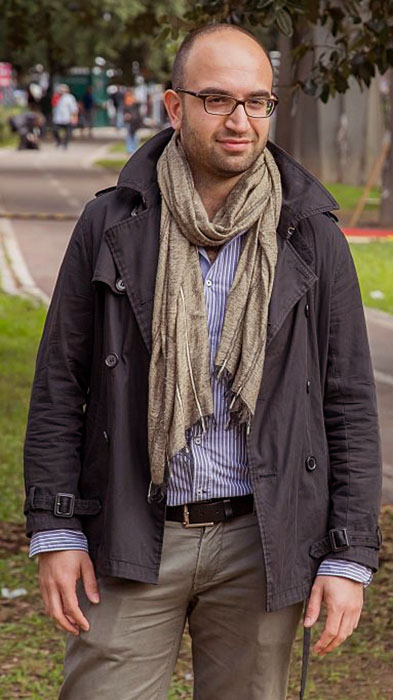
Based solely on young British-Libyan actor Adam Ali’s compelling and highly emotive portrayal of Kamal, one can envision Ali progressing on to an illustrious career. His visceral depiction of a young asylum seeker’s duress ranks as required viewing for anyone still somehow harboring any doubt that the plight of refugees and asylum seekers warrants empathy and commensurately compassionate policy at the state level. This empathy should tangibly support, and compel, 146 states —virtually every state, that is — to fully honor obligations they formally have bound themselves to abide by as ratifiers of the 1951 Refugee Convention, a core pillar of the post-World War II human rights system.
The intricately sculpted and haunting design of Europa’s devoid-of-music soundtrack subtly complements unsettling, largely hand-held and literally in Kamal’s face cinematography. Hand-held agitation in the film’s unflinching tight framing amplifies viewer perception of Kamal’s own agitation. Within this cinematographic style, Adam Ali’s performance provides the film’s major cues and movement, no small task and one he wholly masters. Artful use of highly selective focus additionally compounds Kamal’s angst and his fleeting ability to take in his unsettling atmosphere while running, climbing, scratching and thrashing his way thru the endless forest, a veritable deer hunted and in fear for his life. This tightly edited, 75-minute, cinematography, sound, fury and fear cocktail irrepressibly, and lucidly, immerses beholders in Kamal’s epic ordeal with all of its frightening uncertainty.
Europa aptly closes with Kamal emerging from the forest but without a clear resolution or delivery out of his living hell, honoring the terrifying uncertainty that the plight of Kamal and millions like him entails. For all of its ambiguity, however, the film’s ending vaguely suggests a hopeful, perhaps even peaceful resolution — an obvious subtext being the untold baggage for Kamal and his descendants to heave and reckon with through their lifetimes, like millions of others similarly displaced, uprooted and dispossessed.
Europa achieves its dramatic objectives as expertly, and unusually, as Pontecorvo so hauntingly did in Algiers, alongside his legendary composer friend Ennio Morricone. Europa expertly thrusts a unified package of frenetically paced, unsettling and wholly terrifying, life and death drama at viewers with little mercy, as the subject matter truly deserves and requires. Accordingly, it deserved its recent designation as Iraq’s foreign feature film entry to the upcoming 94th Academy Awards and, although ultimately not making the shortlist, this viewer roots for it to register strong and positive impacts well beyond.



